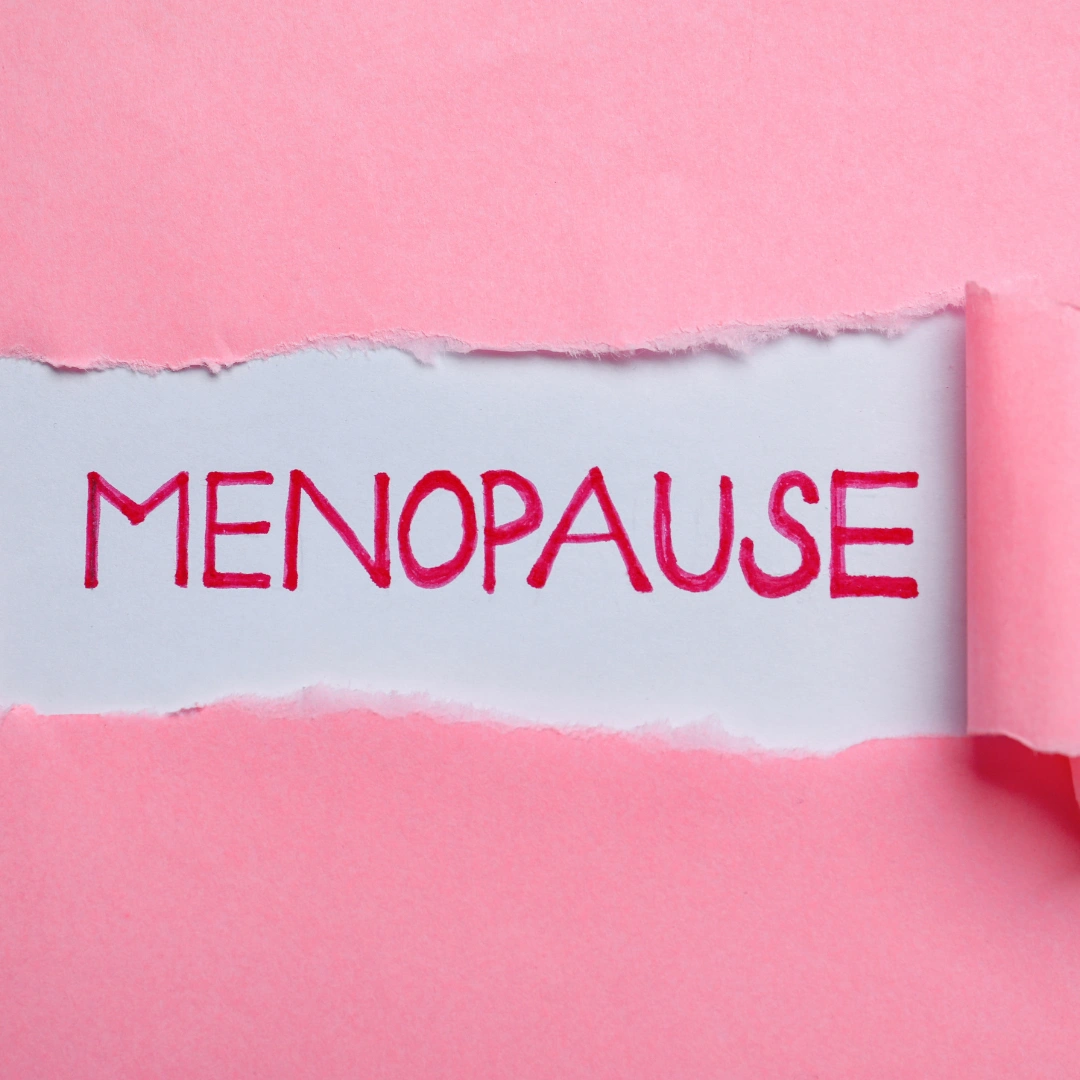Understanding Menopause, what to expect and how to manage your symptoms.
Every biological woman will go through menopause, and while we all have heard of hot flashes, menopause brings more physical and emotional changes. In this article, we will explore menopause, its symptoms, when it typically starts, and how long the symptoms can last.

Introduction
Menopause is a significant phase in a woman's life that is not discussed enough. While we have all heard about hot flashes, menopause can bring various physical and emotional changes. We will explore what menopause is, its symptoms, when it typically starts, and how long the symptoms can last. We will also delve into the hormonal changes that influence menopause.
What is Menopause?
Menopause is marked by not having your period or spotting for at least 12 months and signals the end of your menstrual cycle. Menopause occurs when a woman's ovaries no longer release eggs and produce lower levels of hormones such as oestrogen and progesterone. The average age for menopause in Australia is 51 but early menopause could start in your late 30's / early 40's.
Symptoms of Menopause
The symptoms of menopause differ per person, but there are several common signs to look out for. These symptoms can be categorised into three main areas: physical, emotional, and sexual.
-
Irregular periods
-
Hot flashes
-
Night sweats
-
Vaginal dryness
-
Sleep disturbances
-
Fatigue
-
Mood swings
-
Memory problems
-
Decreased libido
-
Painful intercourse
-
Dry Mouth
-
Losing teeth
-
Joint pain
-
Heart palpitations
-
Body odour changes
-
Electric shock sensations
Symptoms of Menopause
Menopause symptoms can be categorised into three main areas: physical, emotional, and sexual.
Physical Symptoms:
-
Irregular periods: Your menstrual cycles may become irregular, with either longer or shorter intervals between periods.
-
Hot flashes: are a sudden sensation of intense heat, often accompanied by sweating and flushing.
-
Night sweats: Similar to hot flashes, but occurring during sleep and leading to excessive sweating.
-
Vaginal dryness: Decreasing oestrogen levels can cause dryness of the vaginal tissues and make it less elastic.
-
Sleep disturbances: Menopausal women often experience difficulty falling asleep or staying asleep.
-
Fatigue: Feelings of exhaustion and low energy levels may arise during menopause
Emotional Symptoms:
-
Mood swings. The fluctuations in oestrogen and progesterone levels might contribute to mood swings, irritability, and feelings of anxiety or depression.
-
Memory problems: The drop in oestrogen levels can cause forgetfulness, difficulties to concentrate and might even cause you to process information slower.
Sexual Symptoms:
-
Decreased libido: lower levels of oestrogen can impact your sex drive and arousal levels.
-
Painful intercourse: Vaginal dryness can cause discomfort or pain during sexual intercourse.
Besides physical, emotional, and sexual symptoms, there can also be some more surprising symptoms that are often not linked to menopause.
Surprising Symptoms:
-
Dry Mouth and Oral Discomfort: Hormonal changes can cause dry mouth, a metallic taste, or burning sensations in the mouth, which many people don't associate with menopause. What is even more shocking is that 25% of menopausal women are at risk of losing one or more teeth.
-
Joint Pain and Stiffness: The drop in oestrogen can lead to inflammation, causing joint pain, stiffness, and even swelling, which may feel like early arthritis but could be linked to menopause.
-
Heart Palpitations: While this can feel alarming, irregular heartbeats of sudden heart racing are often linked to fluctuating oestrogen levels rather than heart issues. That said, declining oestrogen levels can impact heart health and increase the risk of cardiovascular diseases, so always consult your doctor when you’re feeling heart palpitations.
-
Body Odour Changes: Even if your hygiene habits remain the same, you may notice a change in your smell due to hormonal shifts.
-
Electric Shock Sensations: Some women report feeling sharp, sudden zaps or tingling sensations in their skin. These "electric shock" feelings are linked to hormone fluctuations affecting nerve function. The sensation of electric shocks during menopause is one of the more unusual symptoms that some women experience and could be linked to fluctuations in oestrogen levels.
Duration of Menopausal Symptoms
A common misconception is that menopausal symptoms don't last very long, but symptoms can last for 4-5 years on average! The duration of menopausal symptoms can vary significantly from woman to woman, and some women may experience them for a shorter period. In contrast, others may face them for a decade or more. Various factors, including genetics, lifestyle, and overall health, can influence the severity and duration of symptoms.
Hormonal Changes and Influence on Menopause
During menopause, the ovaries produce less oestrogen and progesterone, leading to changes in the body.
Women may experience bone loss with lower oestrogen levels, increasing the risk of osteoporosis. Additionally, declining oestrogen levels can impact heart health and increase the risk of cardiovascular diseases.
-
Oestrogen Levels Drop: Oestrogen regulates the menstrual cycle and plays a crucial role in maintaining bone density. Women may experience bone loss with lower oestrogen levels, increasing the risk of osteoporosis. Oestrogen also plays a significant role in regulating mood because it affects serotonin, a neurotransmitter that promotes feelings of happiness and well-being. When oestrogen levels decrease during menopause, serotonin levels may drop too, leading to mood swings, irritability, or even feelings of depression. Besides serotonin, oestrogen also helps regulate neurotransmitters like dopamine, and acetylcholine, which are vital for mood, focus and cognition.
-
Progesterone Decline: Sometimes referred to as the "relaxing hormone", the drop in progesterone can contribute to anxiety, restlessness, and mood instability.
Hormone Replacement Therapy (HRT)
In some cases, hormone replacement therapy (HRT) might be a suitable option to treat menopause symptoms. HRT involves using medications that contain hormones to supplement the body's declining levels. It can help alleviate symptoms such as hot flashes, vaginal dryness, and mood swings. HRT might not be suitable for everyone, and we recommend talking to your doctor to discuss the potential risks and benefits.
Medicinal Cannabis
There’s limited research on how Cannabis can treat menopause; some research suggests that Cannabis may offer relief for several menopausal symptoms and might be suitable for women looking for non-hormonal treatments. We discuss the potential of Cannabis in managing menopause here.
Conclusion
Menopause is a natural transition that every biological woman will go through. Too often, women are told to suck it up, but there are ways to manage your symptoms during this phase and live life with more balance and understanding. By recognising the physical, emotional, and sexual symptoms you might be going through, you can make more informed decisions about your health and advocate for the right treatment options for you.
Share this article
Cannabis and Sleep Disturbance During Menopause
It's shocking (or is it?) how little research there's available on how Cannabis could help alleviate menopause symptoms. In this article, we'll review current research available and share how women going through menopause have used Cannabis to help with common menopause symptoms such as sleep disturbances, joint pain and anxiety.

